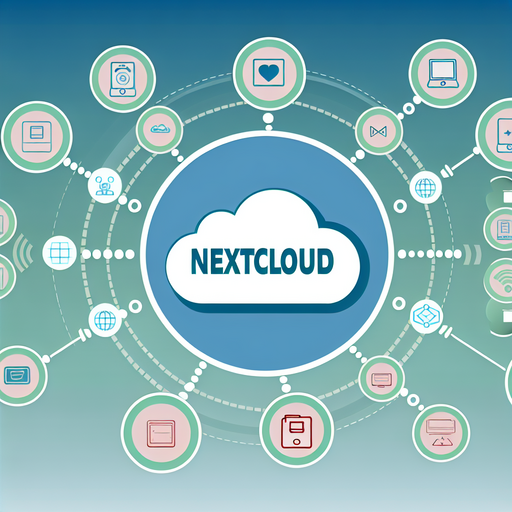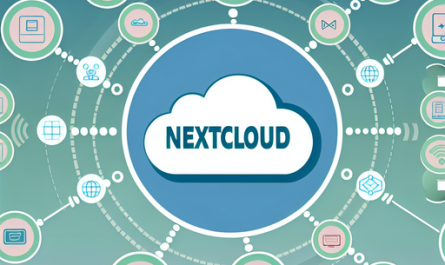Nextcloud and Method CRM: A Comprehensive Integration Guide
Imagine a world where all your cloud storage needs and customer relationship management (CRM) are seamlessly integrated. This is what you achieve when you combine the power of Nextcloud with Method CRM. In this detailed guide, we will explore the features of Nextcloud, delve deep into what Method CRM brings to the table, and provide a step-by-step integration tutorial. By following this guide, you will enhance your team’s productivity, streamline collaboration, and ultimately improve customer satisfaction. Let’s dive in!
What is Nextcloud?
Nextcloud is an open-source cloud storage and collaboration platform that provides a host of features suited for personal and enterprise use. With Nextcloud, you can store files, share documents, organize tasks, and communicate with team members—all in a secure environment. Some of its key features include:
Get Nextcloud with 1 TB of storage for just up to €3.99 per month.
Try it now for one month free and risk-free.
- Secure file storage with advanced encryption
- Real-time collaboration on documents
- Integrated calendar and task management
- Video conferencing and chat options
- Extensive customization with a wide range of apps and plugins
Whether you are working remotely or managing a large in-house team, Nextcloud ensures that your files are accessible anytime, anywhere, and on any device.
What is Method CRM?
Method CRM is a highly customizable customer relationship management (CRM) system designed to work seamlessly with QuickBooks. It offers a bag of features aimed at helping small and medium-sized businesses manage their customer interactions, streamline workflows, and automate repetitive tasks. Key features of Method CRM include:
- Customizable contact and lead management
- Automated workflow efficiency
- Robust integrations with various business tools
- Real-time synchronization with QuickBooks
- Detailed reports and analytics
Nextcloud and Method CRM together provide businesses an unparalleled advantage, combining robust cloud-based storage with an efficient CRM system to optimize both data management and customer relations.
Why Integrate Nextcloud and Method CRM?
Integrating Nextcloud with Method CRM brings together the best of both worlds—cloud storage and digital workflow management combined with efficient CRM. Here are several reasons why this integration can be beneficial:
- Improved Collaboration: Teams can share and collaborate on documents stored in Nextcloud while tracking customer interactions and sales pipelines in Method CRM.
- Centralized Data: Store all customer-related documents, such as contracts and presentations, in Nextcloud, and have them easily accessible from Method CRM.
- Enhanced Security: Utilize Nextcloud’s encryption and security features to protect sensitive customer data managed within Method CRM.
- Increased Efficiency: Automate workflows that combine document management with customer interactions to remove redundant tasks and save time.
- Scalability: Both Nextcloud and Method CRM are highly scalable, making them perfect for growing businesses with increasing data and customer management needs.
Step-by-Step Guide to Integrate Nextcloud with Method CRM
Step 1: Setting Up Nextcloud
Before we dive into the integration, ensure you have a Nextcloud account set up. If not, follow these steps:
- Visit the Nextcloud website and sign up for an account or download the software if you plan to host it yourself.
- Follow the installation instructions provided to set up Nextcloud on your server or service of choice.
- Once installed, log in to your Nextcloud instance.
Step 2: Installing Method CRM
Similarly, ensure you have an active Method CRM account. If you need guidance for setup, follow these steps:
- Go to the Method CRM website and sign up for a new account.
- Follow the onboarding tutorial to set up your business profile, sync with QuickBooks, and configure your CRM needs.
- Log in to your Method CRM account once everything is set up.
Step 3: Enabling Integration
To enable Nextcloud and Method CRM integration, follow these steps:
- Install Necessary Plugins: Install any required plugins or apps that support integration between Nextcloud and Method CRM. You can find these plugins in the Nextcloud App Store or in the Method CRM marketplace.
- API Access: Make sure both platforms have API access enabled. This typically involves configuring some settings in the admin panels of both Nextcloud and Method CRM.
- Connect Accounts: Use the integration settings menu to connect your Nextcloud account to Method CRM. You may need to provide API keys or OAuth credentials to authenticate both platforms.
Advanced Configuration Settings
After the initial setup, there are several advanced configuration settings you can tweak to optimize the integration:
- Folder Mapping: Set up folder mappings to ensure documents stored in Nextcloud are organized according to your CRM’s contact or project structure.
- Workflow Automation: Create automated workflows that trigger specific actions in Method CRM when certain conditions are met in Nextcloud. For example, creating a task in Method CRM when a new document is uploaded to a specific folder.
- Permissions: Configure user permissions to control who can access and modify files and data across both platforms.
Optimizing Integration
Automate Tasks for Unmatched Productivity
Optimizing the Nextcloud and Method CRM integration can significantly elevate your team’s productivity. Here are a few recommendations:
- Task Automation: Automate routine tasks by setting up triggers and actions. For instance, when a salesperson updates customer information in Method CRM, trigger an automated task to upload related documents to Nextcloud.
- Real-Time Collaboration: Enable real-time notifications to stay updated on any changes made to files and documents stored in Nextcloud, ensuring that your team remains in sync.
- Custom Dashboards: Create custom dashboards in Method CRM that display Nextcloud analytics, such as storage usage, recent documents, and user activity.
Maintaining Security and Compliance
Security is a primary concern when dealing with customer data and business files. To maintain security and compliance, consider these tips:
- Data Encryption: Utilize Nextcloud’s end-to-end encryption to secure sensitive customer data while it is at rest and in transit.
- Access Control: Control access to data and files using Nextcloud’s granular permissions. Specify who can read, write, and share each document based on user roles and responsibilities within Method CRM.
- Audit Logs: Enable audit logs and monitoring features in both Nextcloud and Method CRM to keep track of user activities and ensure adherence to compliance standards.
Case Studies and Real-World Applications
Tech Services Company
A technology services company faced challenges with disorganized customer data and inefficient file management. Upon integrating Nextcloud with Method CRM, they achieved:
- Centralized storage of customer contracts and project documents in Nextcloud
- Streamlined customer interactions and follow-ups through automated workflows in Method CRM
- Significant reduction in time spent searching for documents, resulting in increased productivity
Healthcare Provider
A healthcare provider needed a secure and compliant way to manage patient data and appointments. By using Nextcloud and Method CRM together, they experienced:
- Enhanced data security with Nextcloud’s encryption and access controls
- Efficient appointment scheduling and patient follow-ups in Method CRM
- Improved patient satisfaction due to timely and organized care
Conclusion
In conclusion, the integration of Nextcloud with Method CRM presents a powerful solution for businesses seeking to enhance productivity, streamline collaboration, and improve customer relationships. By following this comprehensive guide, you can unlock the full potential of both platforms, ensuring your business operates smoothly and efficiently.
Don’t miss out on the opportunity to leverage the strengths of Nextcloud and Method CRM. Begin your integration journey today and transform the way you manage your data and customer relationships.



